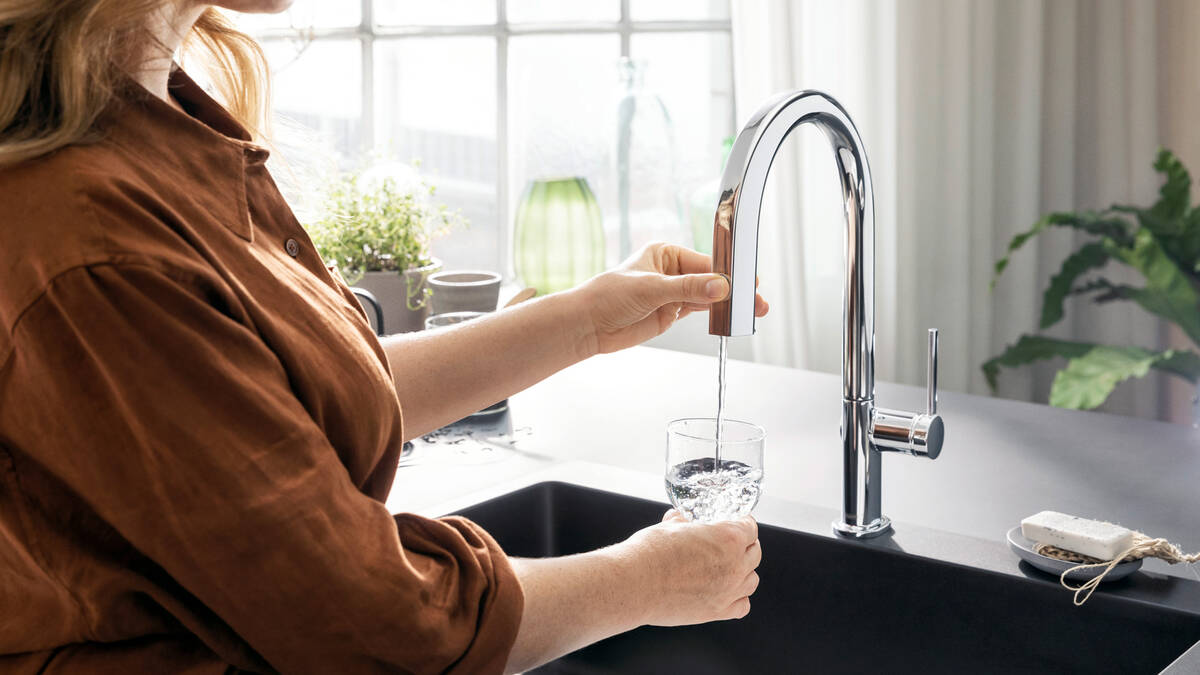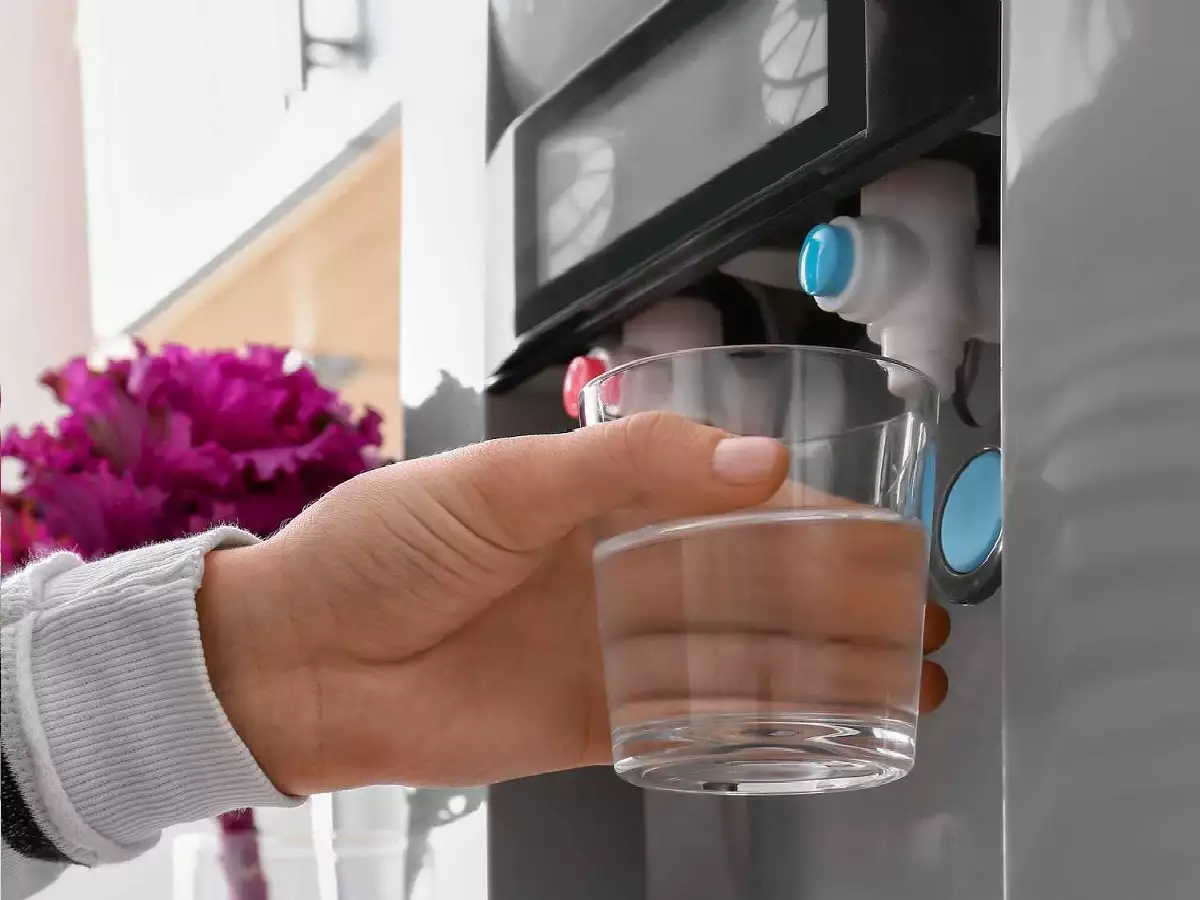
Water is a fundamental component of our lives, accounting for about 60% of our body composition. In the face of mounting concerns about water purity, the use of water filters has surged, with a much bigger emphasis on drinking filtered water over tap water options.
Drinking filtered water provides a host of benefits that may include significant health improvements, economic advantages, and environmental sustainability.
We’ll be exploring the difference between drinking distilled or filtered water and check out the information below on how filtered water benefits you and your family.
Also, if you’ve ever asked yourself, “is reverse osmosis water the same as distilled water”, follow the link to learn more about the differences between those two options.
Health Benefits
The primary advantages of drinking filtered water relate to health, since often carries contaminants like heavy metals, chlorine, fluoride and even bacteria. Despite most states having strict water treatment protocols, remnants of these harmful substances may still in our water supply.
This means that drinking water straight from the tap can lead to potential health issues such as gastrointestinal problems, reproductive issues, and neurological disorders. Utilizing an effective water filter can drastically diminish or completely eliminate these contaminants, leading to cleaner, healthier water that helps avert many potential health problems.
Enhanced Hydration
Optimal hydration is crucial for overall body functioning, and filtered water facilitates this more efficiently than unfiltered tap water. The filtration process eradicates particles and chemicals that could obstruct your body’s water absorption, thereby enhancing hydration.
Some tentative studies show that drinking filtered water can boost cellular hydration, leading to increased energy levels and overall well-being.
Improved Taste and Smell
Contaminants in water not only pose health risks but also negatively impact water’s taste and odor. For instance, chlorine can impart a chemical-like taste and smell to the water.
Water filters, by removing these impurities, significantly enhance the overall taste and odor of your drinking water, making hydration a more pleasurable experience.
Economic Benefits
While buying a water filtration system may initially seem expensive, it can lead to long-term savings. Compare this to the ongoing cost of purchasing bottled water. A home water filtration system eliminates the need for single-use plastic bottles, reducing waste and fostering a healthier planet.
Additionally, the cost per gallon of filtered water is substantially lower than that of bottled water, leading to significant savings over time.
While the reduction of plastic waste is a key advantage of home water filtration systems, it’s also essential to have a reusable and safe water container for on-the-go hydration. Glass water bottles are a great choice, offering a healthier, chemical-free option compared to plastic bottles. For more insights on the best glass water bottles, check out this comprehensive glass water bottles guide by Water Bottle Nerd.

Environmental Impact
The environmental benefits of drinking filtered water cannot be overstated. The production and disposal of plastic water bottles contribute significantly to pollution and landfill waste. By using a water filter, you can drastically reduce plastic waste.
Moreover, filtering water at home minimizes the carbon footprint associated with the transportation and distribution of bottled water.
Emergency Preparedness
Having a water filtration system at home also ensures preparedness for emergencies. Whether it’s a natural disaster that disrupts the water supply or a boil-water advisory due to contamination, a water filter can provide crucial access to safe drinking water.
All of these affect health either directly or indirectly and should be taken into consideration when deciding whether you require additional water filtration in your home. If you are unsure, you should test your water or review your provider’s quality reports to learn more about the condition of your home’s water supply.
Types of Home Water Filters
There are several types of water filters available for home use, each with its own unique capabilities. If you believe your water requires additional filtering, you may want to consider one of these options. While you may be able to purchase smaller filters at your local hardware or department store, you’ll want to consult a professional about installing larger whole-house systems.
1. Activated Carbon Filters
Activated carbon filters, also known as carbon filters or pre-filters, are the most commonly used water filters for home use. They work on the principle of adsorption, with the activated carbon attracting and trapping many impurities as the water passes through. These filters are particularly effective at removing organic compounds, chlorine, and sediments, thereby improving the taste and odor of water. However, they cannot remove minerals, salts, or dissolved inorganic substances.
2. Reverse Osmosis Filters
Reverse Osmosis (RO) filters are renowned for their ability to remove a broad range of contaminants. They work by forcing water through a semi-permeable membrane, which filters out impurities. RO systems can effectively eliminate contaminants such as fluoride, nitrates, pesticides, bacteria, viruses, and heavy metals. However, they also remove beneficial minerals and can generate a considerable amount of wastewater.
3. UV Filters
UV filters use ultraviolet light to deactivate harmful bacteria and viruses, making them incapable of reproducing and causing illness. This method of filtration does not use any chemicals or create waste, making it an environmentally friendly option. However, UV filters cannot remove chemical contaminants, sediments, or dissolved solids. As such, they are often used in combination with other types of filters for a more comprehensive water treatment solution.
4. Ceramic Filters
Ceramic filters use small pore sizes and the natural electrokinetic properties of ceramic material to filter out contaminants. These filters can effectively remove bacteria, cysts, and sediments but are not effective against viruses, chemicals, or dissolved impurities. Some ceramic filters are treated with silver to enhance their bacteriostatic and algicidal capabilities.
5. Ion Exchange Filters
Ion Exchange filters, or water softeners, are excellent for treating hard water. They work by splitting apart atoms of a contaminant to form ions, then exchanging these ions for those of another substance. Most commonly, they replace calcium and magnesium ions, which cause water hardness, with sodium or potassium ions. While they’re great for softening water, they do not effectively remove most other types of contaminants.
Choosing The Right Filter For You
Each of these filters has its strengths and limitations. The choice of a water filter should depend on the quality of your water source, what contaminants you need to remove, and personal preferences such as cost and maintenance requirements.
It’s important to remember that no single filter type can remove all contaminants, so many people opt for a combination of systems to ensure their water is as clean and healthy as possible. In conclusion, understanding the different types of water filters is the first step to ensuring safe and pure drinking water for you and your family.




